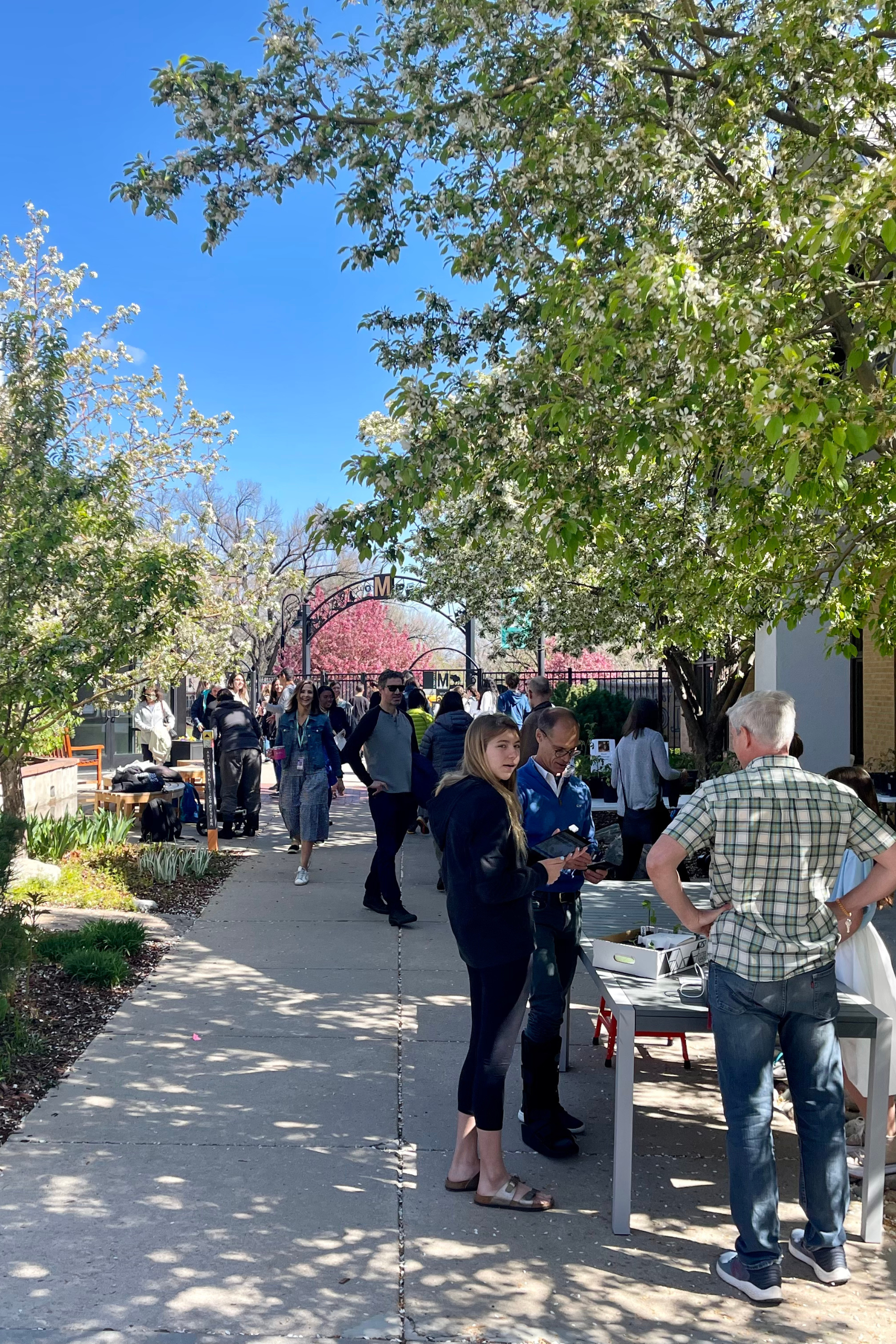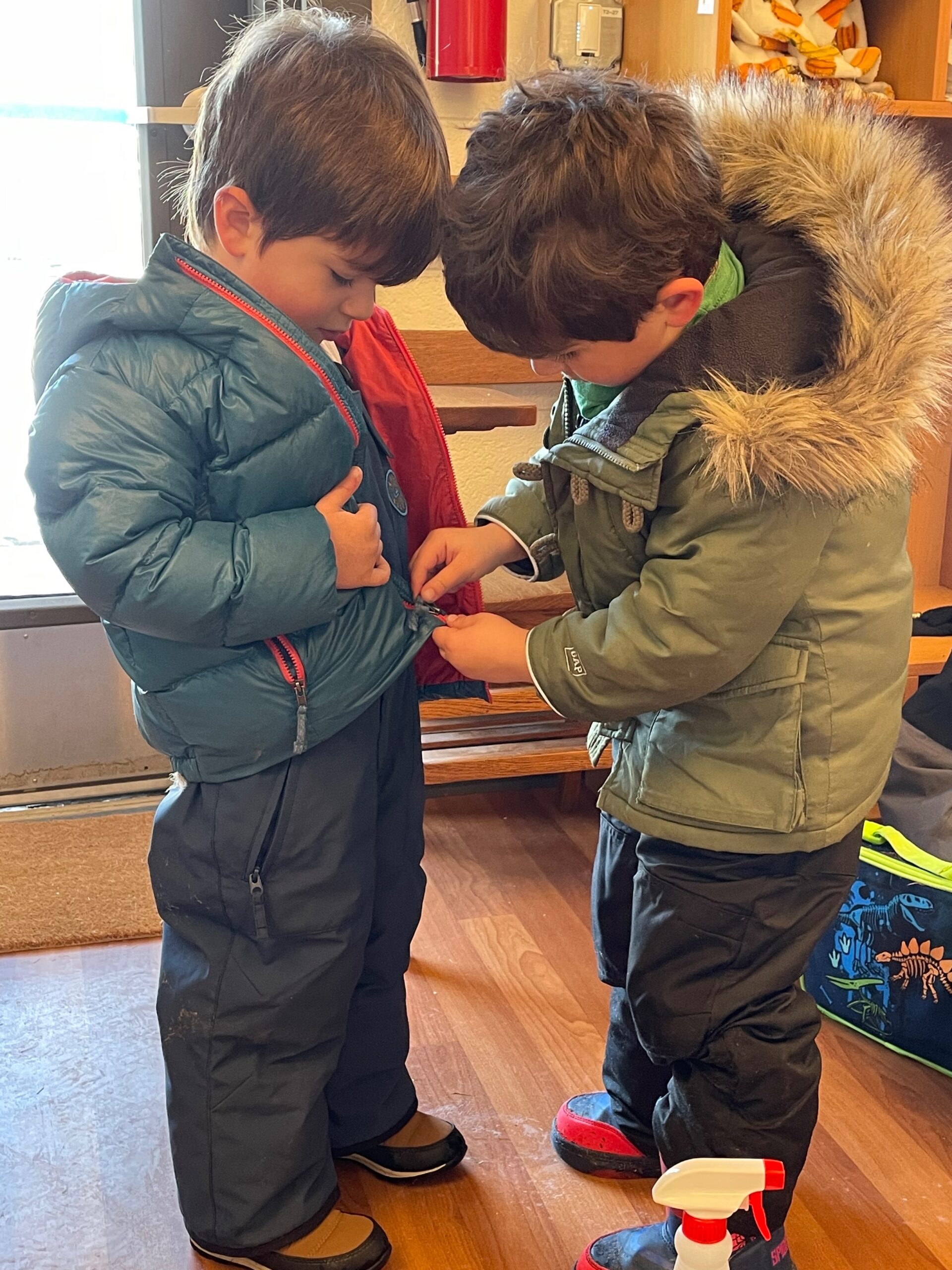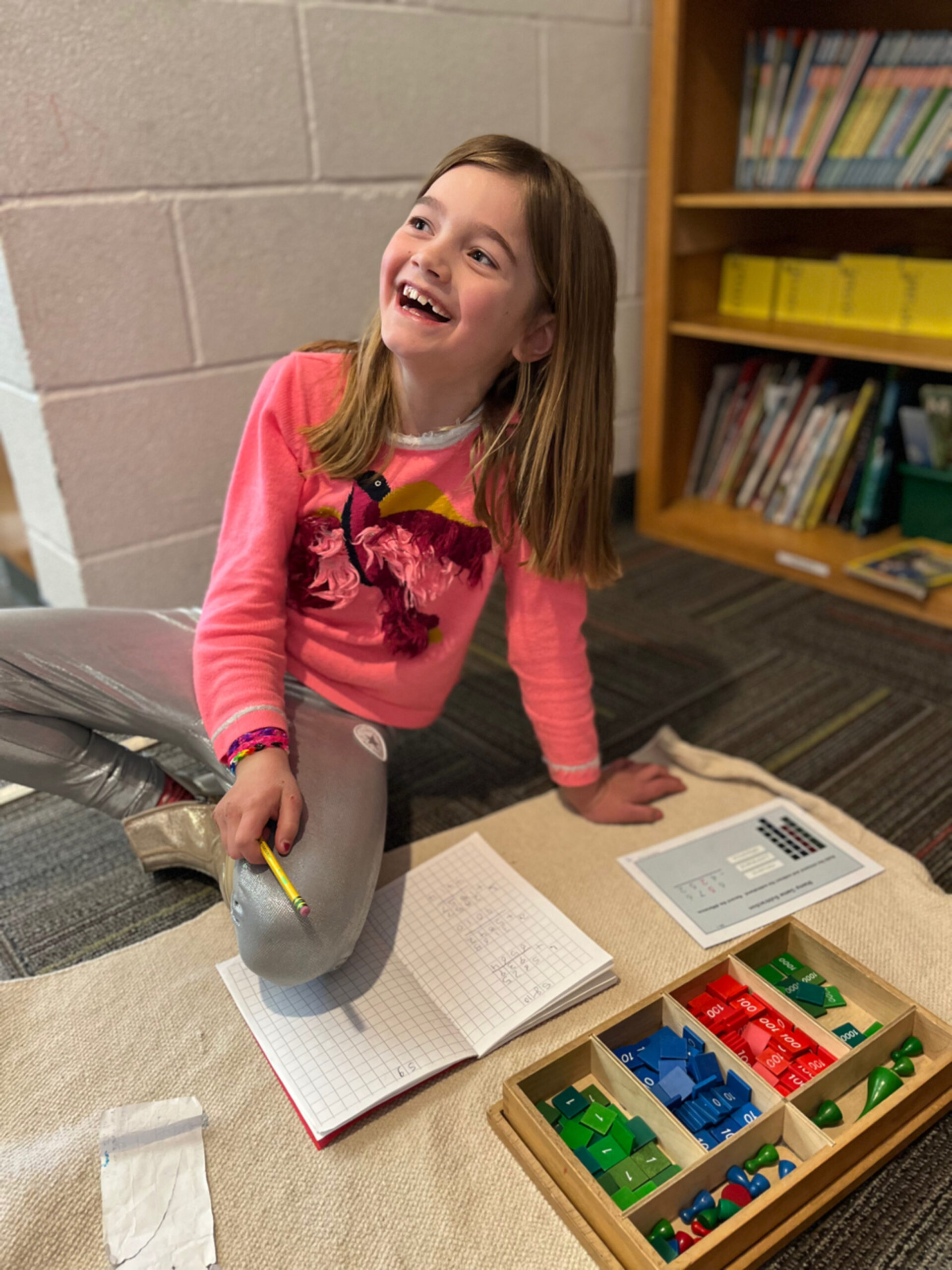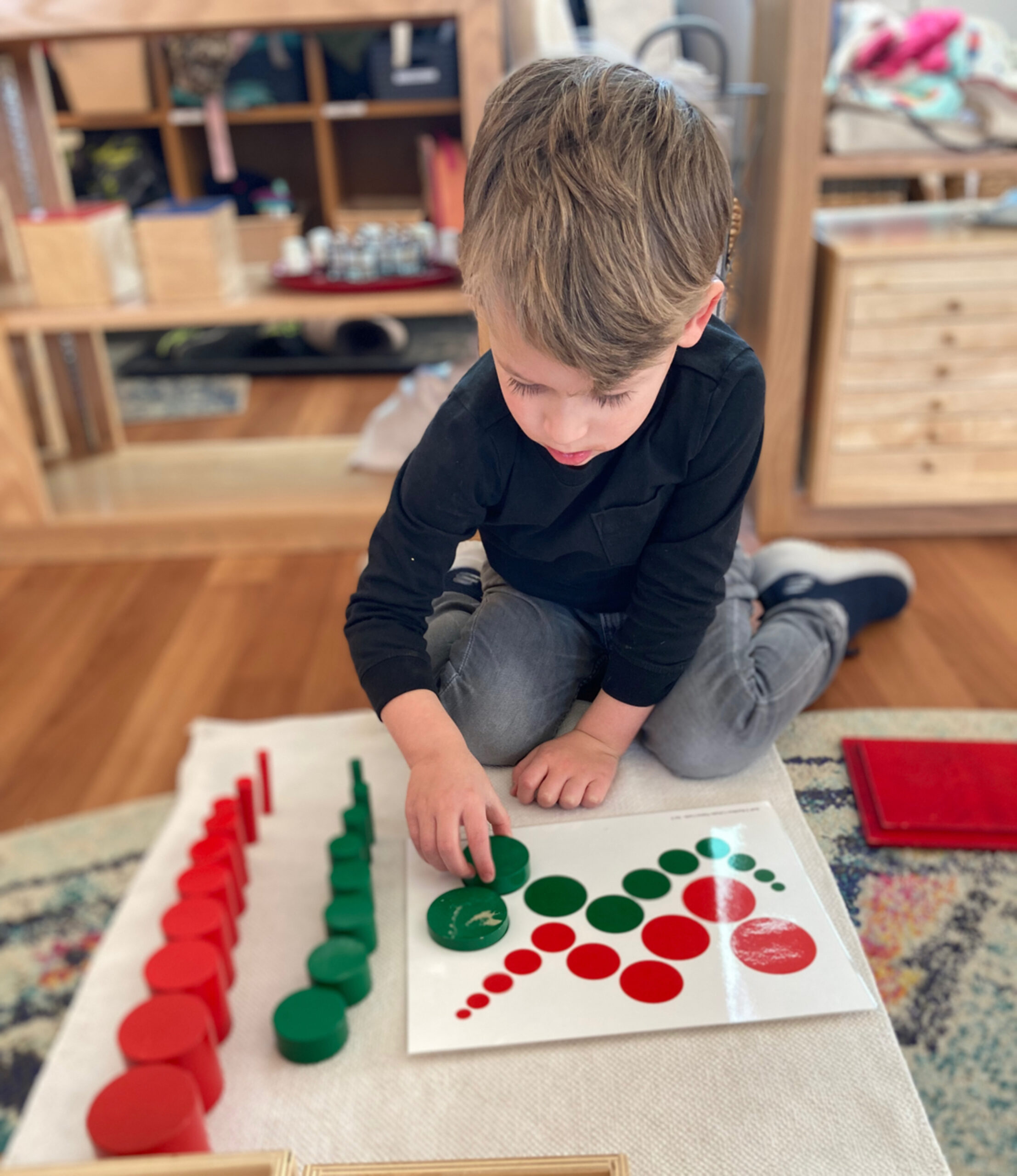OUR PHILOSOPHY
Montessori at MSD
More than 100 years ago, Maria Montessori (1870—1952) saw a great need to reform the educational system of her time. Her ideas have not only stood the test of time, but they have also proven to be more valuable than ever in teaching children for the 21st century.
Dr. Montessori devoted her life to creating schools that develop the full potential of each individual child. She believed that education could be a powerful force in creating more responsible and caring individuals and that through observation, individual choice, and a carefully prepared environment, great success is possible.
For nearly 60 years, MSD has maintained a spirit of innovation anchored in the principles of Montessori, growing to meet the changing needs of our students and the world around us. Our programs support and nurture a child’s development in all areas: physical, intellectual, language, and social-emotional. The foundation of Montessori education was built on developing the optimal learning environments for children, and our campus was designed for just that.
Read on to learn more about the core Montessori principles that resonate with so many parents and so many kinds of learners, and check our our FAQs here.
MONTESSORI PRINCIPLES
Multi-Aged Classrooms and the Three-Year Cycle
The three-year multi-age Montessori classroom* honors Dr. Montessori’s “planes of development.” Dr. Montessori, along with other developmental scientists, observed that children’s development follows a path of successive stages, each with its own particular needs and dispositions—cognitive, social, physical, moral and emotional; and much occurs during each plane as preparation for the succeeding one.
Montessori teachers are trained to meet children’s needs with a three-year developmental curriculum for each age grouping. The curriculum, like child development, is sequential, and creates an environment specifically designed to address developmental needs—whether in Primary, Elementary, or Middle School. The third year (or second year, in Upper Elementary) in a Montessori classroom serves as the culminating academic experience for students. This is where all the pieces come together—where students’ learning is solidified, knowledge is consolidated, and new possibilities for growth and learning begin to emerge. Multi-age groupings also provide the necessary opportunities for older children to be role models for the younger students, both reinforcing their own learning and building self-esteem. Younger students observe their older role models, feel encouraged and gain confidence about the challenges ahead.
In addition, these groupings contribute to a strong sense of community in the classroom. Students build a very close relationship with their teachers who, in turn, get to know each student’s personality, needs, and work habits very well. Finally, having multiple ages in a classroom normalizes both the individual strengths and challenges learners may face, and provides them with the freedom and support to learn at their own pace.
*Our one-year Toddler program prepares students for the Primary classroom, and our two-year Upper Elementary program offers a shorter cycle in preparation for Middle School.
MONTESSORI PRINCIPLES
Individual Learning
MSD recognizes and appreciates that each child learns at a different pace, and we allow time for that growth to happen. The Montessori method is based on a deep respect for and understanding of each individual child’s developmental path.
Concrete Learning First
We emphasize concrete learning first, providing a firm foundation for abstract learning. At MSD, our students experience concepts and ideas in a “hands-on” manner to help build a stable foundation in abstract thinking. As an example, we teach our youngest children to feel the difference in weight between the quantities of one, ten, 100 and 1,000 instead of just memorizing their value. Active, hands-on, concrete experiences are the most powerful, natural form for learning, and this immersion into subjects and ideas helps students think more deeply, make connections across curricula, and discover detailed nuances of ideas and information.
A Sense of Discovery
At MSD, we teach our students the joy of learning and a instill a sense of discovery. By allowing students the freedom of choice and respecting those choices, our students become deeply and intrinsically motivated to learn and understand the work itself. Joyful learning takes place within an engaging, nurturing, and collaborative environment. Students increase knowledge with both self-directed and teacher-initiated experiences.
Carefully Prepared Environments
Our classrooms are welcoming, child-centered, orderly, and stimulating. A thoughtfully prepared environment facilitates each student’s exploration and creativity. In addition, the classroom environment provides the structure for behavior expectations that are clear, predictable, and constant, reinforced by both children and adults. Beautiful, fully equipped classrooms are cared for daily, as well as supported by generous classroom allotments to refresh materials and acquire new ones to pursue new studies.
MONTESSORI PRINCIPLES
Self-Correcting Materials
Montessori materials are appealing, inviting, and self-correcting. This means that, when something doesn’t fit or there are pieces left over, students can immediately see their mistake and correct it without being interrupted by an adult. This helps students develop independent problem solving skills, leading to increased self-confidence and critical thinking.
Large Blocks of Work Time
At MSD, all students have schedules with large blocks of work time. Classroom schedules allow students the time to problem solve, discover the interdisciplinary connections of knowledge, and to construct new ideas. Large blocks of time enable students to develop concentration and grit (the ability to stay with a challenging task to achieve a goal), skills necessary for life’s success.
Montessori Certified Teachers
MSD’s teachers are all specially trained and certified in the Montessori method. In addition to curriculum instruction and Montessori philosophy, teacher education includes child development, teaching strategies, observation, and leadership skills. In a Montessori classroom, teachers act as guides, constantly making observations and introducing developmentally appropriate lessons and materials according to each student’s strengths, weaknesses, and interests.








